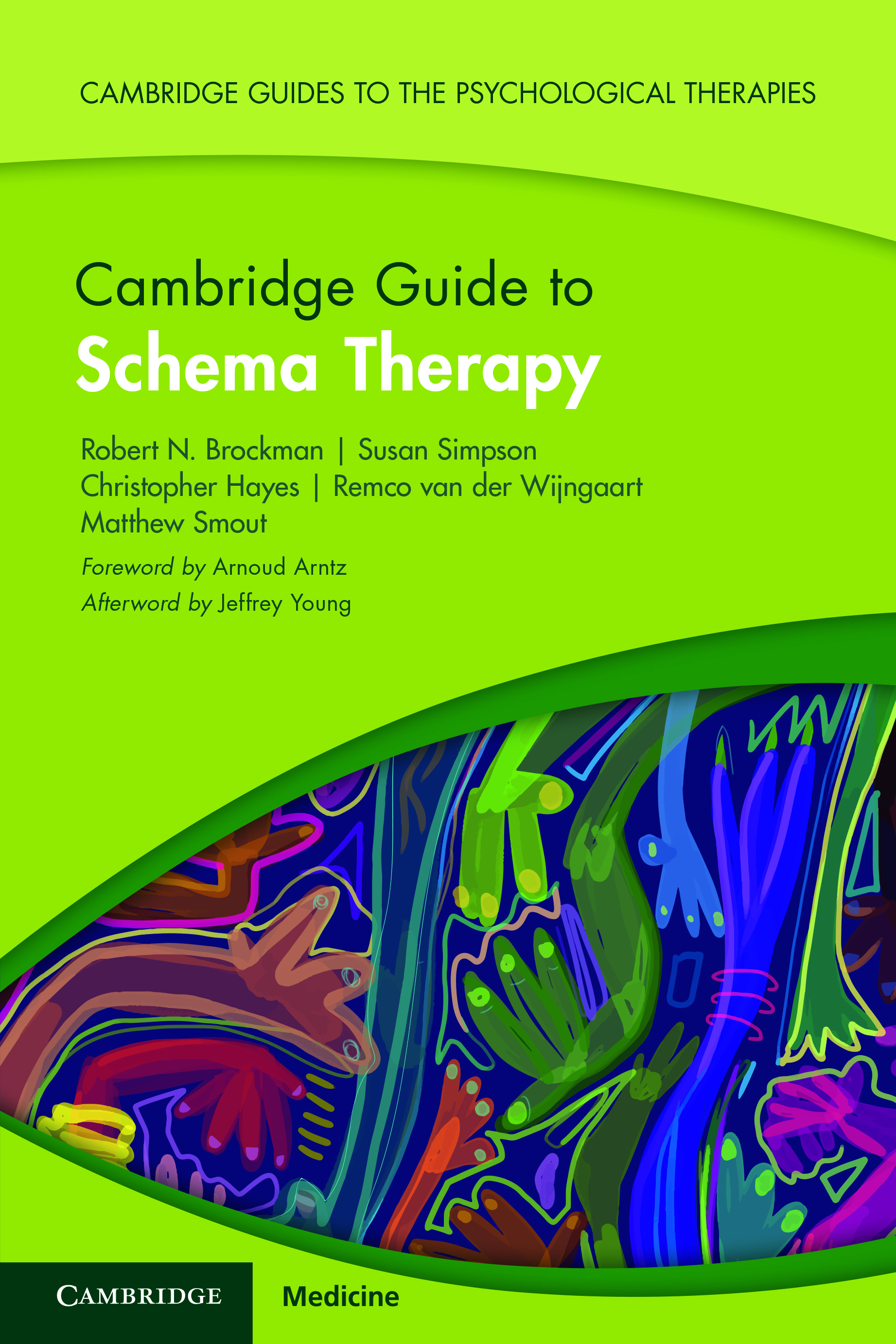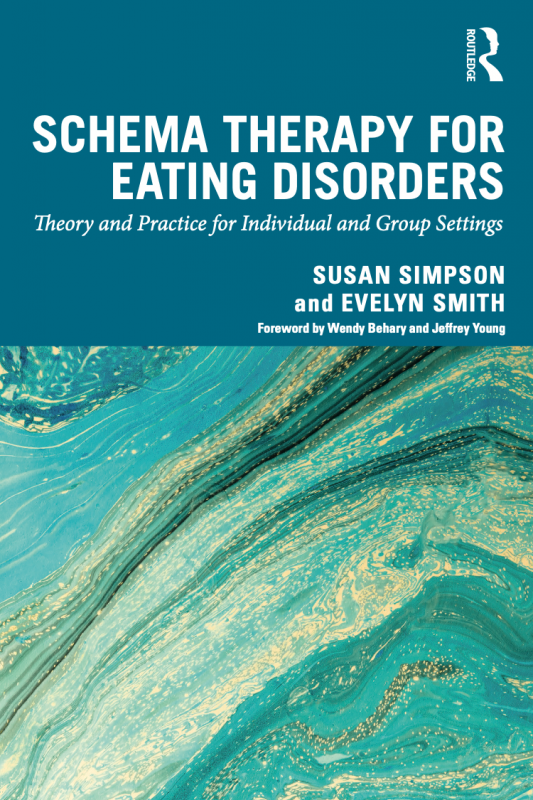Newly Released! Cambridge Guide to Schema Therapy
Schema Therapy for Eating Disorders
Available now through all major bookstores
Authors: Susan Simpson and Evelyn Smith
Schema Therapy for Eating Disorders is the first book of its kind, providing a practitioners' guide to the use of this innovative treatment model for those with eating disorders. Schema Therapy is one of the new exciting frontiers in the treatment of eating disorders. It has a substantial evidence-base for a range of complex problems and rigid personality traits that have been associated with poor outcomes for eating disorders. This book draws on the knowledge of leading experts in the field, providing clinicians with a ‘how-to’ guide on working with complex eating disorders. It provides detailed examples of powerful techniques that can be used to facilitate change, which is especially suitable for those with entrenched or enduring eating pathology.
This book presents recent updates on the schema therapy evidence-base for eating disorders, alongside exciting developments in clinical practice for the whole range of eating disorder diagnostic groups, including those with comorbidity. Theoretical underpinnings of the model and a range of practical applications are described by international expert schema therapy practitioners and researchers. The book provides detailed how-to guide on assessment and conceptualization of eating disorders, working across each of the main eating disorder subtypes. Schema therapy skills and techniques are described as applied to this population, including experiential techniques as applied to group and individual settings. In addition, detailed examples are provided for working with transference, and ways of ensuring therapist self-care in the face of difficult and often long-term work. Readers have access to practice manual as well as specific step-by-step guidelines on the use of schema therapy techniques with the eating disorders population.
What is unique about this book?
This book covers a range of innovative strategies for working with eating disorders, from leading experts in the field.There is a lack of treatment options available for those who do not respond to standard treatments for eating disorders. The evidence base for schema therapy is growing rapidly, particularly in relation to working with complex, chronic disorders, and characterological difficulties. This book provides a ‘how-to’ guide for clinicians working with eating disorders alongside high comorbidity, and in particular rigid personality traits that may interfere with treatment outcomes in this clinical population. This book shows how powerful experiential techniques can be interwoven with cognitive and behavioural work, in order to facilitate change in eating pathology.


